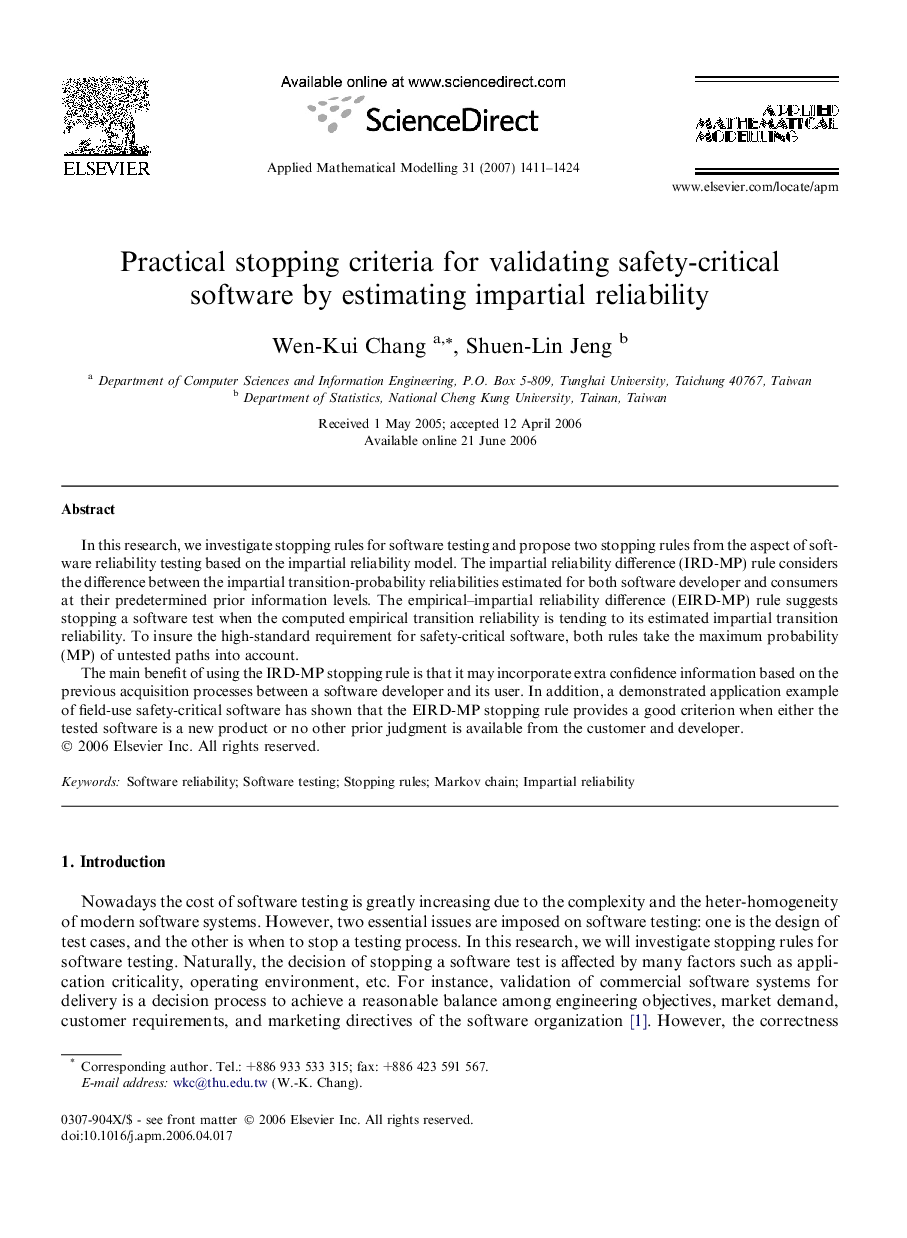| Article ID | Journal | Published Year | Pages | File Type |
|---|---|---|---|---|
| 1706732 | Applied Mathematical Modelling | 2007 | 14 Pages |
In this research, we investigate stopping rules for software testing and propose two stopping rules from the aspect of software reliability testing based on the impartial reliability model. The impartial reliability difference (IRD-MP) rule considers the difference between the impartial transition-probability reliabilities estimated for both software developer and consumers at their predetermined prior information levels. The empirical–impartial reliability difference (EIRD-MP) rule suggests stopping a software test when the computed empirical transition reliability is tending to its estimated impartial transition reliability. To insure the high-standard requirement for safety-critical software, both rules take the maximum probability (MP) of untested paths into account.The main benefit of using the IRD-MP stopping rule is that it may incorporate extra confidence information based on the previous acquisition processes between a software developer and its user. In addition, a demonstrated application example of field-use safety-critical software has shown that the EIRD-MP stopping rule provides a good criterion when either the tested software is a new product or no other prior judgment is available from the customer and developer.
